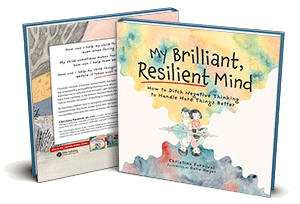Hi there! I’m Christina, a mom of three littles, a licensed mental health therapist, and a children’s book author! Thanks for checking out my site. Look around! I’m sure there’s something here for you! This guest post, written by Stacy Bryant, is about postpartum nutrition and how you can fuel your recovery and well-being.
When you welcome your newborn into the world, it marks a time of incredible joy and monumental transformation. This period is accompanied by a whirlwind of emotions and physical changes, making it crucial to prioritize your health and well-being. Nutrition is a key aspect of your postpartum recovery and adjustment.
Proper nutrition during this time isn’t just about following a diet; it’s about refueling your body, supporting your recovery, and enhancing your capacity to care for your newborn. This article profoundly guides you into nutrition’s crucial role in your postpartum journey, providing practical knowledge and tips to empower you to take control of your health and well-being.
Understanding Postpartum Nutritional Needs
Following childbirth, your body is on a healing journey and requires optimal nutrition for recovery and to meet the increased energy demands. This is especially important if you’re breastfeeding.
The Healing Body: Physical Recovery Demands
After giving birth, your body has various ways of telling you that it’s time to focus on healing and regaining strength. The postpartum period involves:
- Physical recovery from childbirth.
- Managing sleep deprivation.
- Adjusting to the demands of caring for a newborn.
Nutrition plays a significant role in healing tissues, reducing the risk of postpartum complications, and ensuring your body has the energy it needs. Including a balance of proteins, vitamins, and minerals can support wound healing, replenish lost blood, and repair muscles.
Sustaining Energy for You and Your Baby
If you’re breastfeeding, you’re providing nutrients for yourself and your growing baby. This can increase your caloric needs by an additional 500 calories per day. A well-balanced diet rich in complex carbohydrates and healthy fats can help sustain your energy. Prioritize whole foods like fruits, vegetables, whole grains, and lean proteins to keep your milk supply rich in nutrients while maintaining vitality.
The Role of Nutrition in Mental Health
Your mental and emotional well-being is deeply rooted in the nutrition you receive. Hormonal changes after childbirth can affect your mood and susceptibility to postpartum depression and anxiety. You can support your mental well-being by including nutrients such as omega-3 fatty acids, which are thought to play a role in brain health. Foods rich in B vitamins, including leafy greens and legumes, can also aid in regulating your mood and building resilience during this emotionally demanding time.
Combatting Nutritional Deficiencies
The childbirth process can deplete your stores of vital nutrients. Iron deficiency is a common issue that can cause fatigue and affect your ability to care for your newborn. Calcium loss can occur during breastfeeding, potentially impacting your bone health. Replenishing these nutrients through conscious dietary choices or supplements, as your healthcare provider recommends, is essential for your long-term health.
The Importance of Hydration
Adequate hydration affects every system in your body, including lactation. Water plays a crucial role in milk production, temperature regulation, and maintaining energy levels. Drinking plenty of fluids throughout the day can help prevent dehydration, which can compound fatigue and slow down the recovery process.
Nutritional Support for Hormonal Balance
Hormones play a significant role in postpartum recovery, and nutrition can impact how your body regulates and balances these hormones. Foods that support the endocrine system, such as those rich in antioxidants and phytonutrients, can help stabilize hormonal changes and support overall well-being.
Integrated Approach to Postpartum Nutrition
Celebrating a new life also invites you to nurture your body and mind with compassionate self-care and thoughtful nutrition. Viewing your diet as a cornerstone of self-care can empower you to make choices that promote healing, vitality, and emotional balance. Taking a comprehensive approach that recognizes the interconnectedness of physical and mental health will serve you well during the postpartum period and beyond.
Key Nutrients and Their Sources
Macronutrients
- Proteins: Essential for repairing tissues and balancing hormones. Incorporate a variety of sources, such as lean meats, legumes, and dairy products, to support your body’s healing process.
- Carbohydrates: Your primary source of energy. Opt for whole grains, fruits, and vegetables to keep energy levels up without causing spikes in blood sugar levels.
- Fats: Particularly omega-3 fatty acids, which are crucial for brain health and mood regulation. Fatty fish, walnuts, and flaxseeds are excellent sources.
Micronutrients
- Iron: A critical for replenishing blood loss during delivery and boosting energy levels. Include iron-rich foods like spinach, red meat, and fortified cereals.
- Calcium: Supports bone health and is necessary for your baby’s development if you’re breastfeeding. Dairy products, leafy greens, and calcium-fortified foods should be staples in your diet.
- Vitamins B12 and D: Are vital for energy production and bone health. Animal products are primary sources of B12, whereas vitamin D can be synthesized through sunlight exposure and found in fortified foods.
- Hydration: An essential for overall health, especially during lactation. Aim to drink at least 8-10 glasses of water daily, and more if breastfeeding.
Healthy Eating Patterns
Adopting a flexible approach to eating that includes a variety of nutrient-dense foods ensures that your body gets the necessary vitamins and minerals. Meal planning and preparation can significantly alleviate the stress of deciding what to eat. Preparing and freezing meals in advance or seeking assistance from family members can help you maintain a balanced diet without consuming too much time and energy.
Overcoming Nutritional Challenges Postpartum
It’s common to experience changes in appetite or struggle to find time to eat. Keeping nutrient-dense snacks within easy reach and aiming for smaller, more frequent meals can help you meet your nutritional needs without feeling overwhelmed. Listen to your body’s cues, and don’t hesitate to seek nutritious options that satisfy your cravings.
Myths vs. Facts: Postpartum Nutrition
Many myths surround postpartum nutrition, such as the idea that eating certain foods can cause colic in breastfeeding babies. It’s essential to differentiate myth from fact and focus on a balanced diet. Consult healthcare professionals if unsure, and trust evidence-based practices over hearsay.
Seeking Professional Guidance
Navigating postpartum nutrition can be complex, especially if you face specific health concerns or complications. A dietician or nutritionist specializing in postpartum care can provide personalized advice, ensuring your diet supports your recovery and your baby’s health.
Final Thoughts
Your journey through postpartum nutrition is profoundly personal and is critical to your recovery and ongoing well-being. By understanding your body’s needs and taking proactive steps to meet them, you can support a healthier and more vibrant postpartum period. Remember, nourishment is your ally in this journey of recovery and rejuvenation.
Author Bio
I’m Stacy J. Bryant, a passionate mental health content writer, blending my talents at Ability Plus Mental Health Clinic and SpringHive. My mission is to demystify mental health, providing insights on ADHD, medication management, and more at Ability Plus. Concurrently, I craft engaging web content for Mental Health Care clients at SpringHive Digital Marketing Agency, aiming to make discussions around mental health more accessible. Working across these platforms, I seek to break down barriers, share knowledge, and support our community’s mental well-being. My writing is not just information; it’s a tool for empowerment designed to guide individuals toward a healthier, more understanding future.


